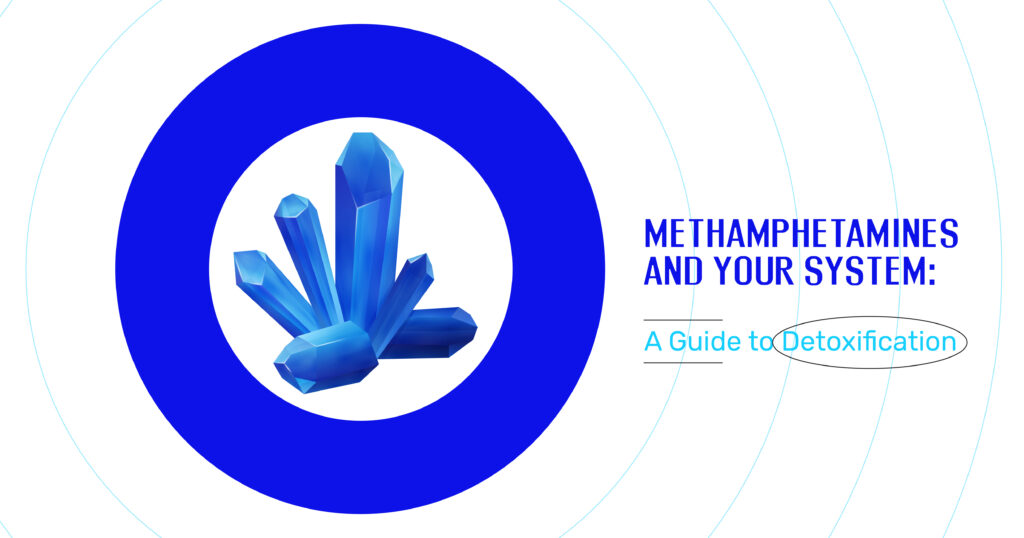
Methamphetamines, commonly known as meth or crystal meth, have a devastating impact on physical and mental health. Whether you or someone you care about is struggling with methamphetamine addiction, the first step toward recovery is understanding how to eliminate these harmful substances from the body.
In this comprehensive guide, we will explore various methods to get methamphetamines out of your system effectively. From natural remedies to professional detox programs, we aim to provide you with the knowledge and tools necessary for a successful detoxification process.
Understanding Methamphetamines and the Detoxification Process
Before delving into the specifics of how to detox your system from methamphetamines, it’s crucial to understand the drug itself and its impact on the body.
What are methamphetamines?
Methamphetamines are potent stimulant drugs that affect the central nervous system. They increase dopamine levels, resulting in feelings of euphoria, increased energy, and reduced appetite. Methamphetamines come in various forms, including crystal meth, powder, and tablets.
How do methamphetamines affect the body?
When methamphetamines are ingested, they rapidly enter the bloodstream and cross the blood-brain barrier. In the brain, they bind to dopamine transporters, preventing the reuptake of dopamine and leading to heightened levels of this neurotransmitter.
How long do methamphetamines stay in your system?
The duration for which methamphetamines remain in your system depends on several factors, including the frequency and amount of use, metabolism, and individual body characteristics. Typically, methamphetamines can be detected in urine for up to 72 hours, in blood for about 24 hours, and in hair for up to 90 days.
Natural Methods for Detoxification
Detoxifying your system from methamphetamines can involve natural methods that assist the body in eliminating toxins more efficiently. These methods can be beneficial for individuals who prefer a holistic approach or want to supplement other detoxification techniques.
Hydration: Water, nature’s detoxifier
- Drinking plenty of water helps flush out toxins through urine and sweat, aiding in the elimination of methamphetamines.
- Aim to drink at least 8–10 glasses of water per day for optimal hydration.
Adequate sleep: Rest for restoration
- Getting enough sleep allows the body to repair and rejuvenate itself.
- Adequate rest promotes overall well-being and supports the detoxification process.
Nutrient-rich diet: Fueling your body
- Consuming a balanced diet rich in fruits, vegetables, lean proteins, and whole grains provides essential nutrients for detoxification.
- Foods high in antioxidants, such as berries and leafy greens, can help remove toxins from the body.
Exercise: Sweating it out
- Engaging in regular physical activity promotes blood circulation and stimulates the lymphatic system, aiding in the elimination of toxins.
- Aim for at least 30 minutes of moderate-intensity exercise per day.
Professional Detoxification Programs
While natural methods can be beneficial, some individuals may require additional support and guidance through professional detoxification programs. These programs are designed to provide a safe and controlled environment for individuals seeking to eliminate methamphetamines from their system.
Inpatient detox programs: Comprehensive support
- Inpatient detox programs offer round-the-clock care and support, with medical professionals monitoring the detoxification process.
- A multidisciplinary team may provide counseling, medications (when necessary), and therapeutic activities.
Outpatient detox programs: Flexibility and support
- Outpatient detox programs allow individuals to receive treatment while living at home.
- Regular check-ins, counseling sessions, and medications (if required) are provided, ensuring ongoing support during the detoxification process.
Medical supervision: Expert guidance
- Seeking medical supervision during the detoxification process ensures safety and accurate monitoring of physical and mental health.
- Medical professionals may prescribe specific medications to manage withdrawal symptoms and assist in the detoxification journey.
Therapy and counseling: Addressing underlying issues
- Detoxification is just the first step. Therapy and counseling help individuals address the underlying causes of substance abuse and develop coping mechanisms for a successful recovery.
- Cognitive-behavioral therapy (CBT), individual counseling, and group therapy are commonly used in detoxification programs.
Potential Risks and Precautions
While detoxifying your system from methamphetamines is crucial for recovery, it is essential to be aware of potential risks and take necessary precautions during the process.
Withdrawal symptoms: Navigating the challenges
- Methamphetamine withdrawal can be physically and emotionally challenging, with symptoms including fatigue, depression, anxiety, and intense cravings.
- Seeking professional help can provide necessary support, medications, and therapy to manage withdrawal symptoms.
Co-occurring disorders: Addressing underlying mental health issues
- Individuals struggling with methamphetamine addiction often have underlying mental health conditions.
- It is crucial to assess and address co-occurring disorders, such as depression or anxiety, during the detoxification process.
Personalized approach: Every individual is unique
- The detoxification process should be tailored to individual needs and circumstances.
- Consulting with healthcare professionals ensures a personalized approach that takes specific health conditions and requirements into account.
FAQs
Can I detox from methamphetamines at home?
Detoxing from methamphetamines at home is possible; however, it is recommended to seek professional guidance, especially if the addiction is severe or if co-occurring disorders are present.
How long does it take to detox from methamphetamines?
The duration of the detoxification process varies from person to person. It can take anywhere from a few days to several weeks to completely eliminate methamphetamines from your system.
Are there any medications available to aid in the detoxification process?
Yes, healthcare professionals may prescribe medications to manage withdrawal symptoms and support the detoxification process. However, it is crucial to consult a medical professional before taking any medications.
Place is unreal, staff is fantastic. Detox is never fun but coming here over other locations in San Diego I was apart of is hands down the best. They make sure you’re comfortable always checking on you even during your worst times. The chef my gosh is there for you with a fresh home cooked meal for lunch and dinner, hopefully you get the help prior to getting to this place but these people are the ones to see if you need help! Hands down to Nina for running an incredible program! – James Baldwin
Putting Yourself on the Path to Recovery
Detoxifying your system from methamphetamines is a crucial step towards recovery from addiction. Whether you choose natural methods or opt for a professional detox program, the keys to success are determination, support, and guidance.
Remember, everyone’s journey is unique, and what works for one person may not work for another. It is important to seek professional help, surround yourself with a supportive network, and address any underlying mental health issues.
The Coastal Detox of Southern California, an addiction treatment center is the top addiction treatment facility and rehabilitation center. Our goal is to provide the best recovery program to help you or a loved one during one of the most difficult times of your life. We offer a team of highly competent professionals who will work with you to create a personalized treatment plan.








